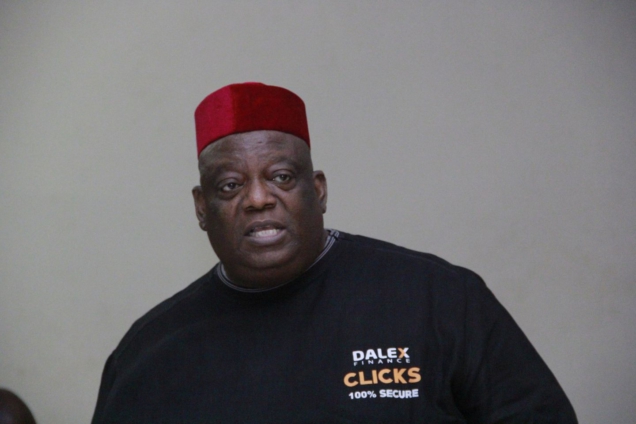Director of Operations at Dalex Finance, Joe Jackson, has described the current economic downturn as one of the toughest he has experienced since 1981.
According to him, there is no dispute when it comes to the dire economic situation the country finds itself in and this is especially reflected in Ghana’s interest rates.
“The government Treasury bill, 91 days Treasury bill was 12.5% per annum in January, now it is almost 28. That’s what? 200% + increase. What does that do to your planning? What does that do to your budgeting? What does that do to an institution that has given out fixed rate loans? And what does that do to the issue of raising deposits?
“Because people have now lost confidence in the cedi due to the depreciation we face this year, so people are saying I want to move my money out into dollars, and prices have gone up for everything. So it’s a tough environment for everybody, let no one be deceived, it’s a tough environment.
“I think that the numbers speak for itself. Inflation at 31, the cedi has depreciated in the forex bureaus over 9.5, our foreign reserves at a historic low, the downgrade of our sovereign debt and you could go on and on. So I don’t think there’s any dispute as to how difficult these times are … these are some of the toughest times I’ve faced since 1981,” he said on JoyNews’ PM Express Business Edition on Thursday.
He noted that any hope or relief will come in the 1st quarter of next year when hopefully the government would have signed onto an IMF programme to help restore investor confidence in the country’s economy.
“So obviously the light at the end of the tunnel is Q1 and the challenges we face are between now and Q1,” he said.
Joe Jackson, however, expressed disappointment in the government’s handling of the economic crisis; noting that more could have been done particularly during the mid-year budget review.
He said, while the e-levy was facing strong opposition in Parliament, the government should have gone ahead to make more cuts to some discretionary expenditures to make up for the delay.
“When it couldn’t get passed I thought the mid-year review would not only cut the discretionary expenditure – and I’d agree that some of the key parts of the expenditure are difficult to cut; issues to do with servicing your debt, issues to do with wages and salaries, they’re tough.
“But I also felt that there were some sacred cows that we should have put on the table and reviewed to indicate to the market that we were serious and ready to address our issues and I say that we lost an opportunity.
“We lost an opportunity at the mid-year review. In a sense, where we are today is not surprising because really even given our constraints we still could have done more,” he said.
Latest Stories
-
Explosive fertiliser in Ivory Coast harbour nothing to fear, officials say
11 minutes -
Nigerian atheist freed from prison but fears for his life
28 minutes -
Djokovic still has ‘trauma’ over Covid deportation
38 minutes -
Constitution isn’t broken, but it needs a service – Former Chief Justice Sophia Akuffo
58 minutes -
Macron accused of ‘contempt’ over Africa remarks
2 hours -
Miner, 23, fined for receiving payments through electronic medium falsely
2 hours -
Norrie apologises after thrown racquet hits spectator
2 hours -
Ex-Chief Justice calls for review of ‘Imperial Presidency’ in the Constitution
3 hours -
Former CJ Sophia Akuffo challenges Akufo-Addo’s stance on constitution’s perfection
3 hours -
Djokovic and Murray join forces in Melbourne
3 hours -
‘It’s tricky, they fly a lot’ – Arteta on Carabao Cup balls
4 hours -
Newcastle win at Arsenal to take control of EFL Cup semi-final tie
4 hours -
Even Salah would struggle at Spurs – Postecoglou
4 hours -
Facebook and Instagram get rid of fact checkers
4 hours -
Trudeau says ‘not a snowball’s chance in hell’ Canada will join US
5 hours

